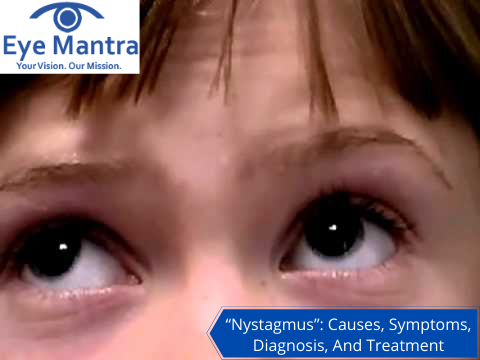Contents
What is Nystagmus?
Nystagmus is an involuntary movement of the eye caused by several factors mainly eye or head injury or some medication side effects. It can cause the eye to move from side to side or up to down involuntarily. It can be genetically acquired. Also, it can occur in one or both eyes, this condition is commonly known as ‘Dancing eyes’. People with nystagmus condition tends to nod and move their head at unusual angles to look at the objects normally.
Nystagmus can affect someone at any age and is usually the result of serious injury or disease. Some serious diseases that can cause nystagmus are strokes, coma, vitamin deficiency, or other eye-related issues. It can also be caused by excessive intake of alcohol.
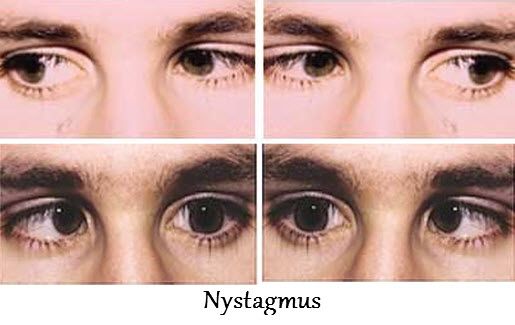
It is important to consult a doctor immediately if you notice any sudden change in your vision. Like any disease, if early treated gives the best results.
Causes of Nystagmus
It can be caused due to some other eye disease or medical conditions. Some people are born with it whereas some develop it later in life. It can be caused due to several reasons such as:
It can be genetically passed down from your parent
Other eye issues like cataract or strabismus
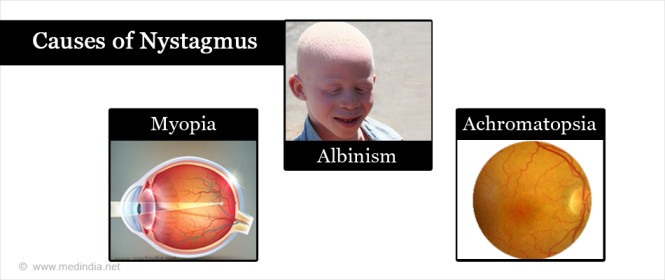
- Head injuries
- Lack of skin pigment
- Inner ear problem
- Alcohol or drugs use
- Myopia
- Albanism
- Some medicational drugs
- Under-developed normal eye movement control
- Sometimes it is very difficult to even for the doctor to identify the cause of Nystagmus.
Symptoms of Nystagmus
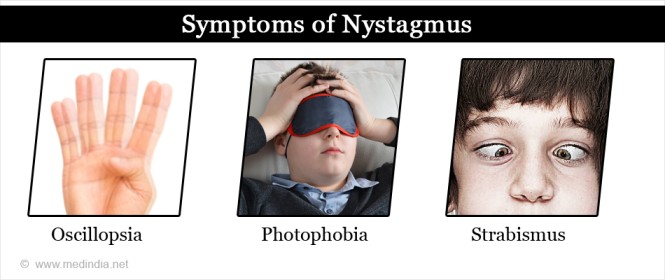
In this condition, the movement of the eye is not controlled. Sometimes it moves very fast or sometimes very slow. You might also notice that you nod your head very often or keep it in strange positions. You do that because it helps you to keep your focus on objects where you cannot steady your gaze. In such cases, things look better and clear when you tilt or turn your head.
Children who get Nystagmus can have a blurry vision but the world doesn’t look shaky in their vision. But the condition is different in adults they may get shaky vision. There are people who are not able to see clearly at night or are sensitive to bright lights. You may also have a problem with balancing and you get dizziness.
- Involuntary eye movement
- Blurry or shaky vision
- Disturbed night time vision
- Unbalance
- Dizziness
Types of Nystagmus
Nystagmus occurs when a part of the brain or inner eye which regulates the movement of the eye doesn’t function properly.
Infantile Syndrome
It is mostly inherited from the parents and occurs within the first six weeks or three months of a child’s life. This type of Nystagmus is usually mild and doesn’t lead to any severe medical problem. In this form of nystagmus, the eye tends to move in a horizontal manner. It is usually associated with other eye conditions like congenital cataracts, underdeveloped optic nerves, and even albinism.
Most people with this kind of Nystagmus don’t need treatment and do not even have any complications later in life. Some people do not even notice their eye movement but vision changes are common.
Vision problem varies people to people but in most cases, it is solved by using corrective lenses or corrective surgery.
Acquired Nystagmus
It can occur at any age of life. The cause of this disease is unknown so it’s also called Idiopathic nystagmus. It occurs due to injury or eye disease. Some of the causes of Acquired Nystagmus are:
- Stroke
- Excessive alcohol consumption
- Head injury or trauma
- Eye disease
- Inner ear disease
- Brain tumour
- The disease of the central nervous system
- Drug toxicity
Spasmus Nutans
Most often this condition occurs 6 months to 3 years of age and disappears on its own between 2-8 years of age. This type of nystagmus cause children to tilt or nod their heads to get a proper vision. Their eyeball may move in any direction. Spasmus nutans usually do not require treatment.
Diagnosis of Nystagmus
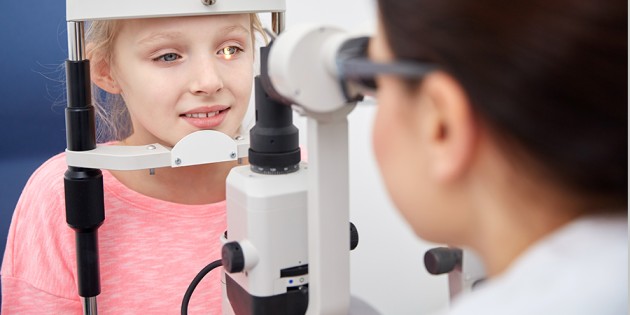
If you are having any trouble in your eyes like blurred vision or pain in the eyes, consult a doctor as soon as possible. Your doctor will conduct different eye exams to see inside your eyes and carefully examine all its parts.
You might have to go through other tests including:
- Ear exam
- Neurological exam
- Brain MRI
- Brain CT scan
- Recording your eye movement
Considering nystagmus is often a result of other neurological diseases. A doctor may take other tests to better understand the cause. As per the result obtained from the tests, the doctor will confirm if the patient has nystagmus and suggest possible treatments.
Your doctor may also ask you to spin around in the chair for 30 seconds and then focus on any object. If you have Nystagmus then your eyes will first move slowly in a direction and then rapidly to the other direction.
Treatment of Nystagmus
Treatment depends on the cause i.e., whether it is congenital or acquired. Congenital Nystagmus does not require any treatment but the following things can help you to improve your vision:
- Eyeglasses & Contact lenses – Although eyeglasses cannot correct nystagmus effectively they do help in improving vision.
- Magnifying devices and lightning around the house- Using magnifying devices can help in improving vision. Sometimes, increasing lighting in surroundings can also be helpful.
- Surgery- In some cases, congenital Nystagmus decreases over time in childhood but your child has a severe case the doctor might suggest you go through surgery to change the position of the muscle responsible for eye movement.
Such surgery doesn’t treat Nystagmus but reduces the degree of involuntary eye movements.
In cases of acquired Nystagmus treatment depends on its underlying cause. Some common treatment includes:
- Changing medication
- Correcting vitamin deficiency with supplements
- Eye drops to prevent an eye infection
- Antibiotics for ear infection
- Brain surgery for central nervous system disorder
Tips For People With Nystagmus
If you have nystagmus, you can do some things that will help you improves your eyesight and make it easy to do daily activities.
Improve the lighting condition of your home and paint the walls with bright colors. Also, protect your eyes from sunlight and from using dangerous equipment. People with nystagmus cannot do some activities that require précised vision like driving. It can limit certain activities so find a caregiver for help if needed.
If your child has nystagmus, it will probably go away with time but try to encourage them by letting them be.
For effective diagnosis and treatment, you can visit our website- www.eyemantra.in or visit the best eye hospital in Delhi now. Call 9711115191 or mail us at [email protected] to book a meeting with us.
Our team of great and experienced ophthalmologists will always suggest the best option for your eyes.
We also offer various services like Retina Surgery, Specs Removal, Lasik Surgery, Squint, Cataract Surgery, Glaucoma Surgery, and much more.
Related Links

